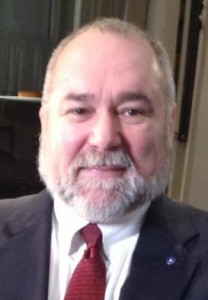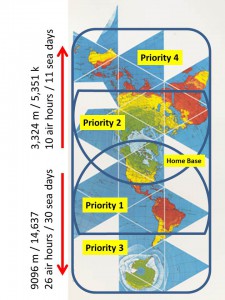
Click on Image for Personal Page
The Hourglass Strategy: Healing the Americas with Intelligence & Integrity
Robert David STEELE Vivas, CEO, Earth Intelligence Network
Mr. Steele grew up in Latin America, returning as a clandestine case officer, and then going on to teach governments across the region how to leverage Open Source Intelligence (OSINT). He is the #1 Amazon reviewer for non-fiction, reading in 98 categories, and has been described in the media as a serial pioneer and an unsung hero helping create the future. If implemented, ethical evidence-based decision-support becomes the foundation for a completely new innovative and positive OAS in the Americas.

The USA and the OAS have lost their way. The formation of CELAC (Community of Latin American and Caribbean States) was ignored, just as President Barack Obama ignored the value of the book Open Veins of Latin America when it was given to him by President Hugo Chavez. The seven sins of American foreign policy, beginning with ignorance and ending with arrogance, persist. Meanwhile, in Asia – and reinforcing the future of CELAC – President Obama was politely sent home with a sound rejection of his proposed and obviously predatory Trans-Pacific Partnership; instead, a Regional Comprehensive Economic Partnership (RCEP) is being established. The Western Hemisphere including the Arctic should be but is not Priority One for the USA and OAS. The fact is that the USA and OAS lack a strategy, lack coherent policies, and lack harmonized spending strategies for embracing, nurturing, and devising mutually beneficial diplomatic, informational, military, and economic (DIME) programs. This is a global short-coming best addressed first in relation to the Americas.
Robert Steele, of Colombian and Spanish heritage on his mother’s side, will present the Open Source Agency (OAS) concept as an implementation of the 9/11 Commission recommendation on pages 23 and 413, but under diplomatic auspices, not CIA auspices. Twice approved by Office of Management and Budget (OMB) senior staff, this potential presidential initiative lacks only the sponsorship of a Cabinet Secretary if not the President or the National Security Advisor. Integrating both the National Monitoring and Planning Center (NMPC) as envisioned by General Tony Zinni, USMC (Ret) in his book The Battle for Peace, and the first ever Multinational-Decision Support Centre (MDSC) as briefed in Chile, the OSC will restore the primacy of the Department of State in foreign affairs on a foundation of shareable relevant inexpensive public intelligence (decision-support), and achieve an “information advantage” across the Americas that is both mutually beneficial, and not available from any other source. The strategy, and emphasis on Open Source Everything (OSE) have extraordinary diplomatic, commercial, educational, energy, health, immigration, justice, and military implications, as well as scientific & technical implications. A new building is envisaged, on the South-Central Campus adjacent to the Department of State and the US Institute of Peace, where Whole of Government public intelligence in the public interest can be orchestrated, and multinational multiagency initiatives harmonized on the basis of shared decision-support toward mutual benefit. Military to military collaboration is central to this idea, which also calls for a 450-ship Navy, a long-haul Air Force, and an air-liftable Army.
Briefing:



